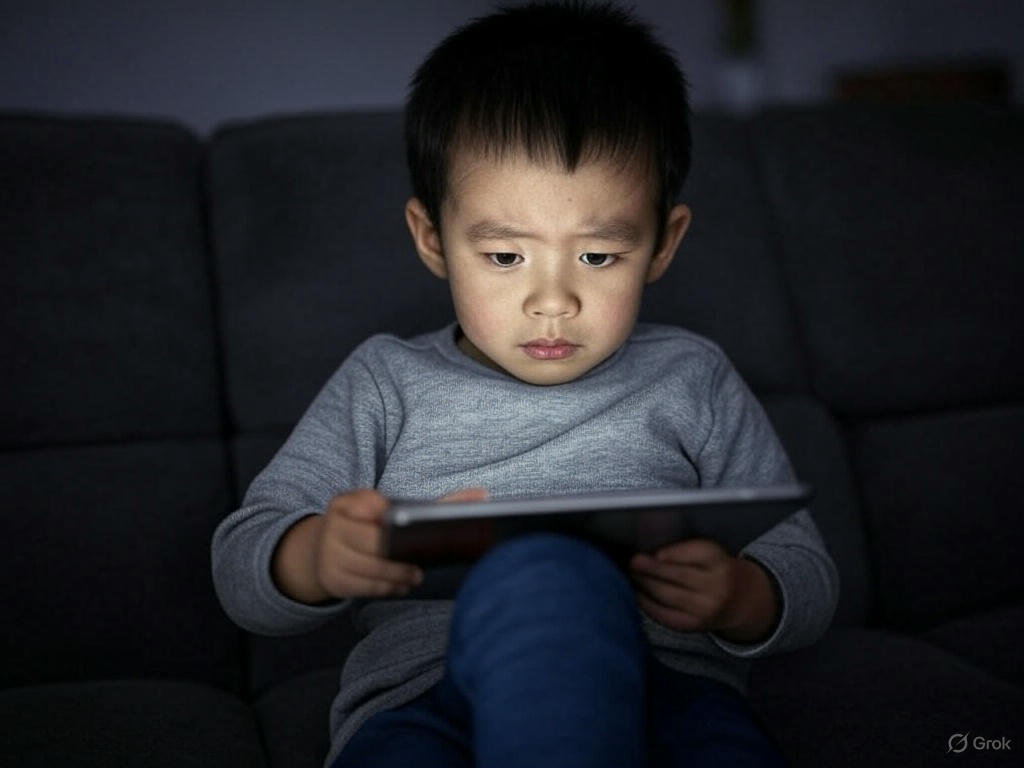Screen Time Recommendations for Young Children: A Comprehensive Guide
Introduction to Screen Time Guidelines for Young Children
In today’s digital age, screens are an integral part of our lives. From smartphones to tablets, children are exposed to screens at an increasingly young age. However, understanding screen time recommendations for young children is crucial for fostering healthy development. These guidelines help parents and caregivers make informed decisions about how much screen time is appropriate for their little ones.
Screen time guidelines are designed to balance the benefits of technology with the potential risks of overexposure. They emphasize the importance of age-appropriate content, parental supervision, and alternative activities to ensure children’s overall well-being. By following these recommendations, families can create a healthy relationship with technology.
In this article, we’ll explore the importance of limiting screen time, age-specific recommendations, and practical tips for managing screen use. Whether you’re a parent, teacher, or caregiver, this guide will provide valuable insights into managing screen time effectively.
Let’s dive into the details of screen time recommendations for young children and how they can positively impact early childhood development.
The Importance of Limiting Screen Time in Early Childhood
Early childhood is a critical period for brain development, and excessive screen time can interfere with this process. Research shows that too much screen exposure can delay language development, reduce attention spans, and hinder social skills. Limiting screen time ensures that children have ample opportunities for hands-on learning and face-to-face interactions.
According to the American Academy of Pediatrics (AAP), children under the age of 5 should spend more time engaging in activities that promote cognitive, physical, and emotional growth. These include reading, playing outdoors, and interacting with family members. By adhering to screen time recommendations for young children, parents can support their child’s holistic development.
Another reason to limit screen time is to prevent the development of unhealthy habits. Prolonged screen use can lead to sedentary behavior, which is linked to obesity and other health issues. Encouraging active play and reducing screen dependency can help children maintain a healthy lifestyle.
Ultimately, setting boundaries around screen time helps children develop self-regulation skills and fosters a balanced approach to technology use. This is especially important in preparing them for a tech-driven world while safeguarding their mental and physical health.
Recommended Screen Time for Infants and Toddlers
For infants and toddlers, the AAP recommends minimal to no screen time. Children under 18 months should avoid screens altogether, except for video chatting with family members. This is because their brains are rapidly developing, and real-world interactions are far more beneficial than digital ones.
For toddlers aged 18 to 24 months, limited screen time can be introduced, but only high-quality, educational content should be used. Parents should co-view the content to help their child understand and engage with it. This aligns with the screen time recommendations for young children, which emphasize the importance of parental involvement.
Studies have shown that excessive screen time in toddlers can lead to speech delays and reduced problem-solving skills. Instead of relying on screens, parents can encourage activities like building blocks, storytelling, and sensory play to stimulate their child’s development.
By following these guidelines, parents can ensure that their infants and toddlers are exposed to enriching experiences that support their growth and learning.
Screen Time Recommendations for Preschool-Aged Children
Preschool-aged children (2 to 5 years old) can benefit from limited screen time when it is used appropriately. The AAP suggests no more than one hour of screen time per day for this age group, focusing on high-quality, educational programming.
Interactive content that encourages learning and creativity is ideal for preschoolers. For example, apps that teach numbers, letters, or problem-solving skills can be a valuable addition to their daily routine. However, it’s essential to balance screen time with other activities like outdoor play, arts and crafts, and social interactions.
Parental supervision remains a key component of screen time recommendations for young children. Watching programs together allows parents to discuss the content, answer questions, and reinforce learning. This shared experience also strengthens the parent-child bond.
By setting clear boundaries and prioritizing educational content, parents can help preschoolers develop a healthy relationship with technology while supporting their overall development.
Balancing Educational and Entertainment Screen Content
Not all screen time is created equal. While educational content can enhance learning, entertainment-focused media often lacks developmental value. Striking a balance between the two is essential for adhering to screen time recommendations for young children.
Educational content, such as interactive apps and age-appropriate documentaries, can teach valuable skills and concepts. For instance, programs like “Sesame Street” have been shown to improve literacy and social-emotional skills in young viewers. On the other hand, excessive exposure to entertainment media can lead to passive consumption and reduced attention spans.
Parents should evaluate the quality of the content their children consume. Look for programs that encourage active participation, critical thinking, and creativity. Avoid content with fast-paced visuals or violent themes, as these can overstimulate young minds.
By prioritizing educational content and limiting entertainment media, families can make the most of screen time while supporting their child’s growth and development.
The Role of Parental Supervision in Screen Time Management
Parental supervision is a cornerstone of effective screen time management. By actively monitoring their child’s screen use, parents can ensure that it aligns with screen time recommendations for young children.
One way to supervise screen time is by co-viewing programs and discussing the content with your child. This not only enhances their understanding but also provides an opportunity to address any questions or concerns they may have. For example, if a child watches a program about animals, parents can expand on the topic by sharing additional facts or planning a trip to the zoo.
Setting clear rules and expectations around screen use is another important aspect of supervision. For instance, parents can establish “screen-free zones” in the home, such as the dining table or bedroom, to encourage family interactions and better sleep hygiene.
By taking an active role in their child’s screen time, parents can create a safe and enriching digital environment that supports healthy development.
Potential Risks of Excessive Screen Time for Young Minds
Excessive screen time poses several risks to young children’s development. One of the most significant concerns is its impact on physical health. Prolonged screen use can lead to sedentary behavior, which increases the risk of obesity and related health issues.
Another risk is the effect on cognitive development. Studies have shown that excessive screen time can impair language skills, memory, and attention spans. This is particularly concerning during early childhood, a period of rapid brain development.
Social and emotional well-being can also be affected. Children who spend too much time on screens may struggle with face-to-face interactions and emotional regulation. This underscores the importance of adhering to screen time recommendations for young children.
By understanding these risks, parents can take proactive steps to limit screen time and prioritize activities that promote physical, cognitive, and social development.
Encouraging Alternative Activities to Reduce Screen Dependency
Reducing screen dependency involves offering children engaging alternatives that stimulate their minds and bodies. Activities like outdoor play, arts and crafts, and reading are excellent options for young children.
For example, a family trip to the park can provide opportunities for physical exercise and social interaction. Similarly, creative activities like painting or building with blocks can enhance fine motor skills and problem-solving abilities.
Parents can also encourage group activities that foster teamwork and communication. For instance, organizing a playdate or participating in community events can help children develop social skills while reducing their reliance on screens.
By incorporating these alternatives into daily routines, families can adhere to screen time recommendations for young children while promoting a well-rounded lifestyle.
Tips for Creating a Healthy Screen Time Routine
Establishing a healthy screen time routine is essential for managing technology use effectively. Start by setting clear limits on daily screen time based on your child’s age and developmental needs.
Create a schedule that includes designated times for screen use, such as after homework or chores. This helps children understand that screen time is a privilege, not a right. Be consistent with these rules to reinforce healthy habits.
Incorporate “screen-free” periods into your family’s routine, such as during meals or before bedtime. This aligns with screen time recommendations for young children and promotes better sleep and family bonding.
Finally, lead by example. Children are more likely to follow screen time rules if they see their parents practicing similar habits. By modeling mindful technology use, you can set a positive example for your child.
Long-Term Benefits of Mindful Screen Time Practices
Adhering to screen time recommendations for young children offers numerous long-term benefits. One of the most significant advantages is the development of healthy habits that can last a lifetime. Children who learn to balance screen use with other activities are more likely to maintain this balance as they grow older.
Mindful screen time practices also support academic success. By prioritizing educational content and limiting distractions, children can develop better focus and critical thinking skills. This sets a strong foundation for future learning.
Additionally, reducing screen dependency fosters stronger family relationships. Shared activities like reading, playing games, or cooking together create lasting memories and strengthen emotional bonds.
Ultimately, following screen time recommendations for young children helps them grow into well-rounded individuals who can navigate the digital world responsibly and effectively.
Conclusion
In conclusion, understanding and implementing screen time recommendations for young children is essential for their overall development and well-being. By limiting screen time, prioritizing educational content, and encouraging alternative activities, parents can create a balanced approach to technology use.
Parental supervision plays a crucial role in managing screen time effectively, ensuring that children are exposed to safe and enriching content. By following these guidelines, families can mitigate the risks of excessive screen use and promote a healthy lifestyle.
Remember, the goal is not to eliminate screens entirely but to use them mindfully and in moderation. By doing so, you can help your child develop the skills and habits they need to thrive in a digital world.
For more resources on child development and inclusive education, visit Prashast.org.
FAQ: Screen Time Recommendations for Young Children
- What is the recommended screen time for infants?
- Infants under 18 months should avoid screen time entirely, except for video chatting with family members, as per screen time recommendations for young children.
- How much screen time is appropriate for preschool-aged children?
- Preschool-aged children (2 to 5 years old) should have no more than one hour of screen time per day, focusing on high-quality, educational content.
- Why is parental supervision important in managing screen time?
- Parental supervision ensures that children are exposed to age-appropriate and enriching content. It also allows parents to discuss and reinforce learning from screen-based activities.
- What are some alternatives to screen time for young children?
- Alternatives include outdoor play, arts and crafts, reading, and group activities that promote physical, cognitive, and social development.



